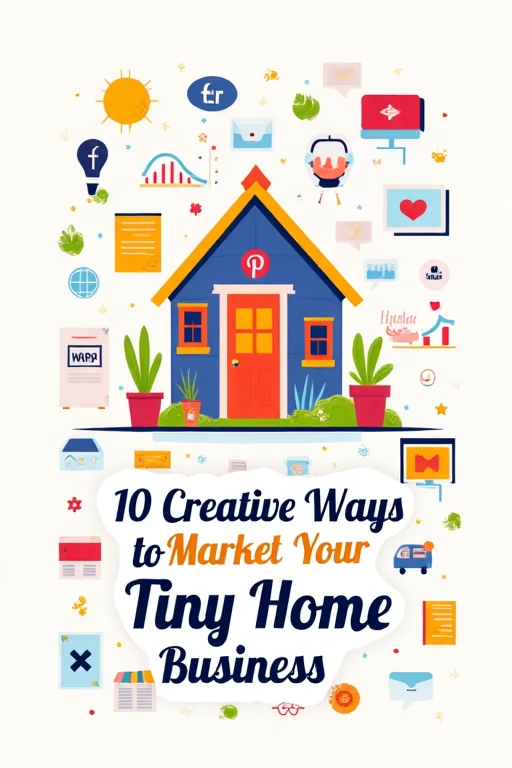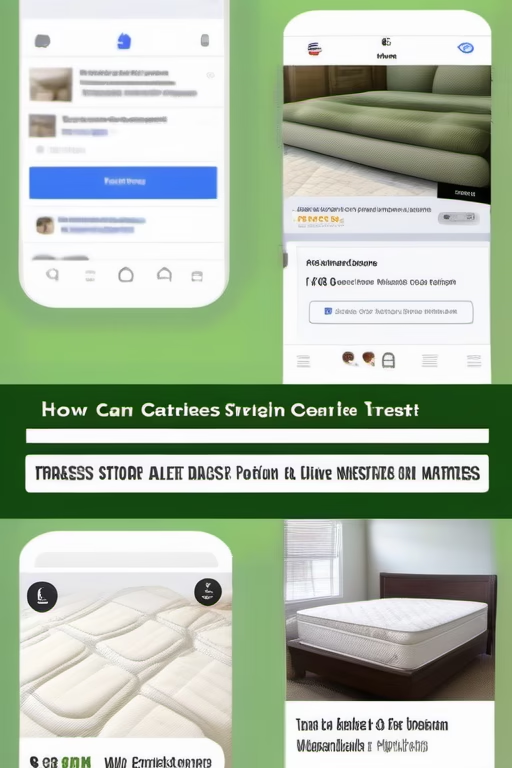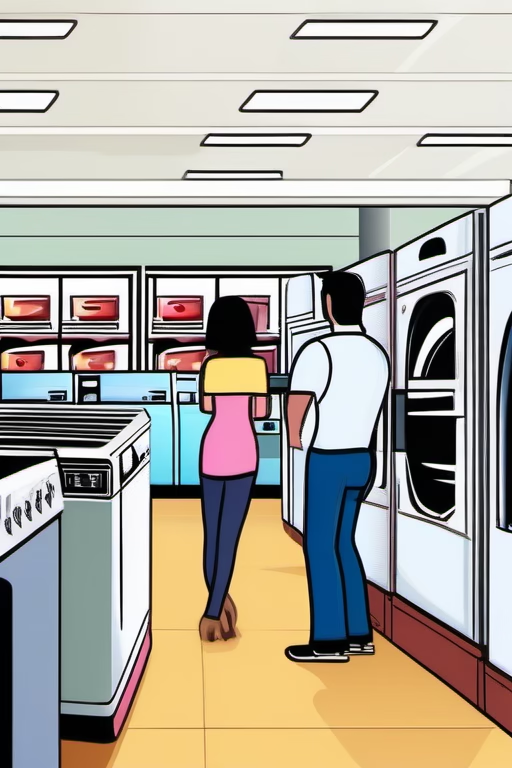10 Creative Ways to Market Your Tiny Home Business
In the booming tiny home industry, standing out from the competition is essential for success. Whether you're a builder, designer, or retailer, effective marketing strategies can help you reach your target audience and grow your business. Here are 10 creative ways to market your tiny home business that will set you apart and drive sales.
1. Leverage Social Media Platforms
Social media is a powerful tool for showcasing your tiny home designs and connecting with potential customers. Platforms like Instagram, Pinterest, and Facebook are ideal for sharing high-quality images, virtual tours, and customer testimonials. Utilize features like Instagram Stories, Reels, and Facebook Live to engage your audience in real-time and highlight the unique aspects of your tiny homes.
2. Create Compelling Content Marketing
Content marketing is key to establishing your authority in the tiny home industry. Start a blog on your website where you can share tips on tiny living, design ideas, and success stories from your customers. Additionally, consider creating video content for platforms like YouTube to provide virtual tours, DIY projects, and behind-the-scenes looks at your building process.
3. Optimize for Local SEO
Local SEO helps your business appear in search results when potential customers are searching for tiny homes in your area. Ensure your website is optimized with local keywords, such as "tiny homes in [Your City]" and "affordable tiny houses near me." Register your business on Google My Business to enhance your local presence and attract nearby clients.
4. Utilize Influencer Partnerships
Collaborating with influencers who align with the tiny living lifestyle can expand your reach. Identify influencers in the sustainability, minimalism, and home design niches who can showcase your tiny homes to their followers. Influencer partnerships can provide authentic endorsements and drive traffic to your website.
5. Host Open Houses and Workshops
Hosting open houses at your tiny home models or workshops on tiny living can attract interested prospects. These events offer potential customers the opportunity to experience your homes firsthand and ask questions. Additionally, workshops on topics like space optimization and sustainable living can position your business as a knowledgeable leader in the industry.
6. Implement Email Marketing Campaigns
Email marketing remains one of the most effective ways to nurture leads and maintain relationships with past customers. Collect email addresses through your website and events, then send regular newsletters featuring new designs, promotions, and industry news. Personalize your emails to address the specific interests of your subscribers.
7. Invest in Paid Advertising
Paid advertising can accelerate your marketing efforts by targeting specific demographics and interests. Platforms like Google Ads and Facebook Ads allow you to create highly targeted campaigns that reach potential tiny home buyers. Experiment with different ad formats, such as carousel ads and video ads, to see what resonates best with your audience.
8. Develop Strategic Partnerships
Partnering with complementary businesses can expand your reach and provide added value to your customers. Collaborate with real estate agents, land developers, and sustainable living organizations to create joint marketing initiatives. These partnerships can lead to referrals and broaden your network within the tiny home community.
9. Showcase Customer Testimonials and Case Studies
Nothing builds trust like positive feedback from satisfied customers. Collect and display testimonials on your website and social media channels. Develop detailed case studies that highlight how your tiny homes have transformed your customers' lives. Authentic stories and reviews can significantly influence potential buyers' decisions.
10. Attend and Sponsor Industry Events
Participating in industry events, such as tiny home expos and sustainability fairs, can increase your visibility and connect you with a targeted audience. Consider sponsoring events to enhance your brand presence and demonstrate your commitment to the tiny home movement. These events also provide opportunities to network with industry professionals and potential customers.
Conclusion
Marketing your tiny home business requires a mix of creativity, strategy, and consistent effort. By leveraging social media, optimizing for local SEO, partnering with influencers, and implementing the other strategies outlined above, you can effectively reach your target audience and grow your business in the competitive tiny home market.
Frequently Asked Questions (Q&A)
1. What is the best social media platform for marketing tiny homes?
Instagram and Pinterest are highly visual platforms ideal for showcasing tiny home designs and reaching a large audience interested in home aesthetics.
2. How can I improve my tiny home business's local SEO?
Optimize your website with local keywords, ensure your business is listed on Google My Business, and gather reviews from local customers.
3. What type of content should I create for my tiny home blog?
Share tips on tiny living, design ideas, customer stories, DIY projects, and updates about your latest projects.
4. How do influencer partnerships benefit my tiny home business?
Influencers can provide authentic endorsements, expand your reach, and attract their followers to your brand.
5. What are effective ways to collect email addresses for marketing?
Use website sign-up forms, offer downloadable resources, host events, and provide incentives like discounts for newsletter subscriptions.
6. How much should I budget for paid advertising for my tiny home business?
Start with a modest budget, analyze the performance of your ads, and scale up based on what generates the best return on investment.
7. Can hosting workshops help my tiny home business?
Yes, workshops can position you as an expert, engage potential customers, and build a community around your brand.
8. What are strategic partnerships, and how can they help my business?
Strategic partnerships involve collaborating with complementary businesses to expand your reach, share resources, and generate referrals.
9. How important are customer testimonials for my marketing strategy?
Extremely important. They build trust, provide social proof, and can significantly influence potential buyers' decisions.
10. Which paid advertising platforms are most effective for tiny home businesses?
Google Ads and Facebook Ads are highly effective due to their robust targeting options and wide reach.
11. How can I use video marketing to promote my tiny homes?
Create virtual tours, showcase the building process, share customer testimonials, and produce educational content about tiny living.
12. What are some cost-effective marketing strategies for a tiny home business?
Utilize social media, content marketing, email campaigns, and strategic partnerships, which often require more time than money.
13. How do I measure the success of my marketing campaigns?
Track key metrics such as website traffic, conversion rates, social media engagement, and return on investment (ROI).
14. Should I attend tiny home expos to market my business?
Yes, expos provide excellent opportunities to showcase your homes, network with industry professionals, and connect with potential customers.
15. What are the benefits of optimizing my website for mobile users?
A mobile-optimized website improves user experience, increases engagement, and boosts your rankings in mobile search results.
16. How often should I update my blog for effective content marketing?
Aim to publish new content regularly, such as once a week or bi-weekly, to keep your audience engaged and improve SEO.
17. What role does sustainability play in marketing tiny homes?
Emphasizing sustainability can attract eco-conscious customers and differentiate your brand in the market.
18. Can virtual reality (VR) enhance my tiny home marketing efforts?
Yes, VR can offer immersive virtual tours, allowing potential buyers to experience your homes remotely.
19. How can I use customer feedback to improve my marketing strategies?
Analyze feedback to identify strengths and areas for improvement, and adjust your marketing messages to address customer needs and preferences.
20. What is the importance of a professional website for my tiny home business?
A professional website establishes credibility, showcases your portfolio, provides essential information, and serves as a hub for your marketing efforts.
25 Extra Keywords for Your Digital Marketing Agency Website
- Digital marketing strategies
- SEO services
- Social media management
- PPC advertising
- Content creation
- Brand development
- Online marketing solutions
- Email marketing campaigns
- Website design and development
- Conversion rate optimization
- Influencer marketing
- Video marketing services
- Local SEO optimization
- Mobile marketing
- E-commerce marketing
- Analytics and reporting
- Marketing automation
- Reputation management
- Graphic design services
- Digital advertising agency
- Search engine marketing
- Lead generation strategies
- Marketing consultation
- Retargeting campaigns
- Comprehensive marketing plans

















